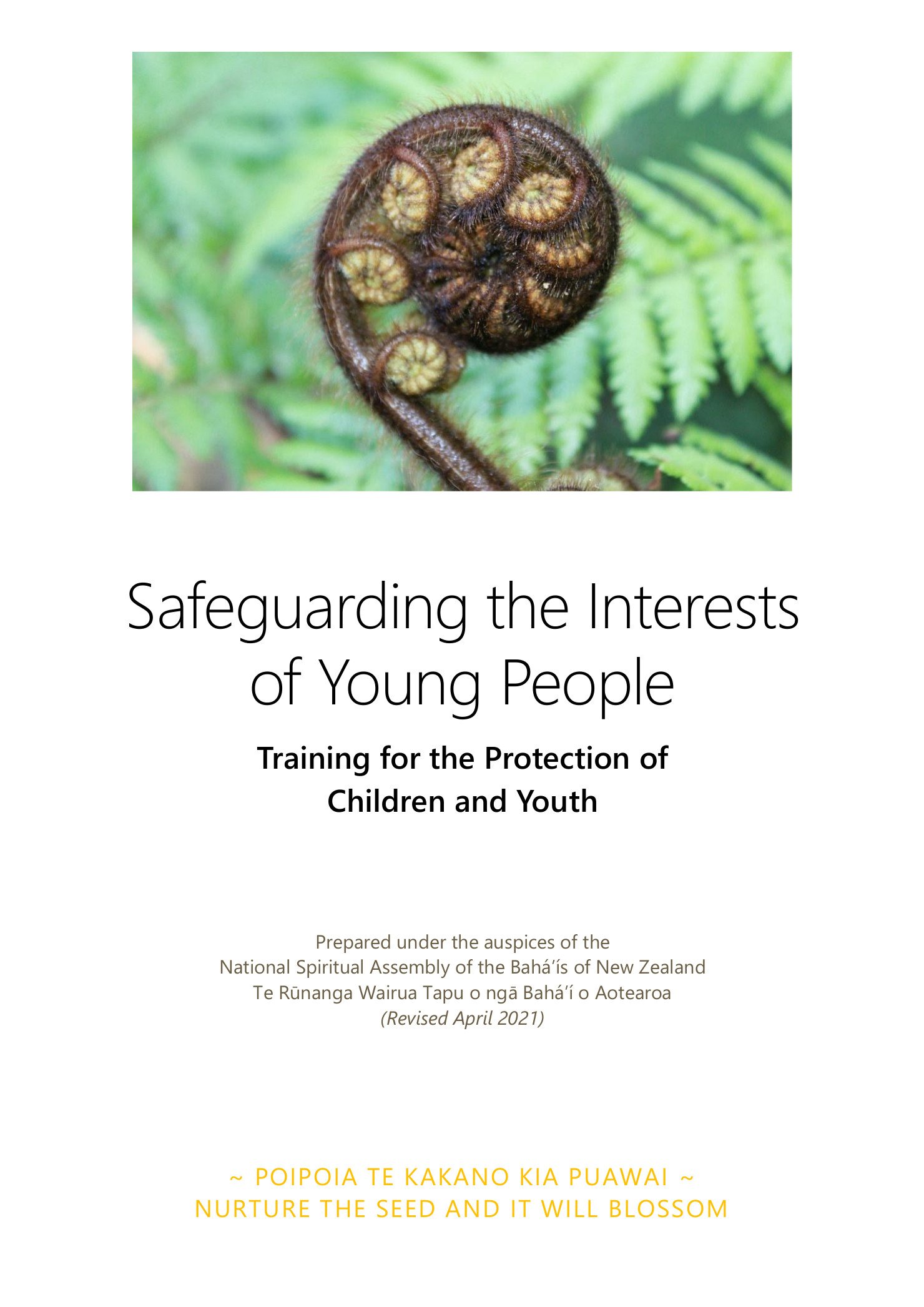Building capacity to safeguard young people
Since the course is intended to contribute to the development of the community as a whole, all community members are invited to participate…
Safeguarding the Interests of Young People - Training for the Protection of Children and Youth is the revised and updated child protection training course. Regional training institutes are coordinating trainings around the country through a cohort of facilitators.
In recent years, the range of activities of the Bahá’í community of Aotearoa has widened significantly, particularly those involving young people. These community-building endeavours are attracting the involvement of an ever-widening circle of participants and facilitators of all ages and backgrounds—and it has meant there is a need for a more comprehensive training to build greater awareness and capacity to safeguard the interests of children and young people.
This training course is intended to contribute to the development of the community as a whole — individuals, families, groups and institutions — and is for all community members, irrespective of whether or not they intend to carry out acts of service directly associated with children or young people under the age of 18. It aims to raise consciousness in the community about the challenges and opportunities which face young people in Aotearoa New Zealand. All protagonists in the Divine Plan share concern for and carry responsibilities towards the young people of the world who constitute the most precious treasure of every community.
Cover of the course manual, Safeguarding the Interests of Young People
The training is part of the child protection accreditation process* overseen by the National Spiritual Assembly. Any person over the age of 15 wishing to work with young people at any activity or event under the aegis of any Bahá’í institution or agency must undertake the Safeguarding the Interests of Young People training and complete the child protection accreditation process. Any youth or adults may undertake the training even if they do not intend to work with young persons and go through the accreditation process.
The training consists of four units, which are:
Our Responsibilities towards Young People. This unit is concerned with the vital role which the community plays in creating an environment which is conducive to the moral empowerment of young people. Reflection is encouraged on the kind of caring attitudes toward young people that the Teachings of the Faith would have us display, in contrast to certain harmful attitudes we may tend to absorb from today’s social environment.
Safeguarding and Protecting Our Young People. This unit is concerned with the need for individuals and communities to proactively protect the interests and safety of children and young people, to assess risks to safety that may arise in carrying out community-building activities, and to strengthen their ability to plan in a way which minimises risks. It introduces procedures to follow when planning events and activities.
Responding to Challenges Facing Our Young People. This unit examines some implications of the disintegrative social forces on families, and on the treatment of children. It raises awareness of the nature and types of child abuse and neglect, and of the appropriate procedures for responding to a disclosure or observation of abuse or other harmful behaviour.
Responding Wholeheartedly to the Spiritual Aspirations of Young People. This unit familiarises participants with opportunities for individuals to arise and take specific actions within their communities, aimed towards equipping young people to become active agents of change. The unit imparts a deeper understanding of the vital importance of the programmes for the spiritual education of children and the spiritual empowerment of junior youth, the role of the training institute, and of the opportunities they have to support and further the development of these and other community endeavours.
An accompanying handbook provides resources on the planning and smooth management of activities for young people. It includes guidance on activity planning for specific age groups, on ensuring participants’ wellbeing (mental, spiritual, social and physical), protecting participants’ rights, and watching over the responsibilities of facilitators, helpers and visitors.
The revised materials are the result of months of diligent work by a small dedicated team and a number of groups who have trialled the material and provided valuable feedback.
Footnote
* The process for obtaining accreditation involves completing the training course material (approximately 7 hours) and completing various forms, after which background checks and Police vetting are conducted.







